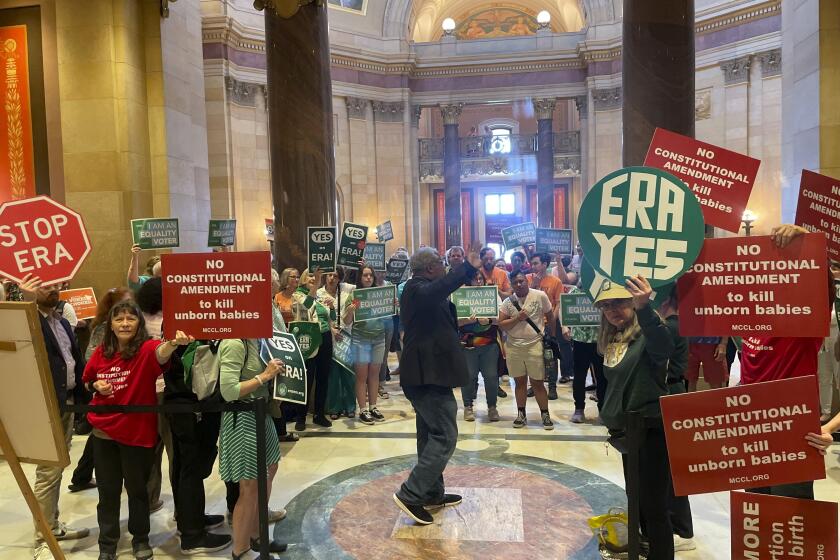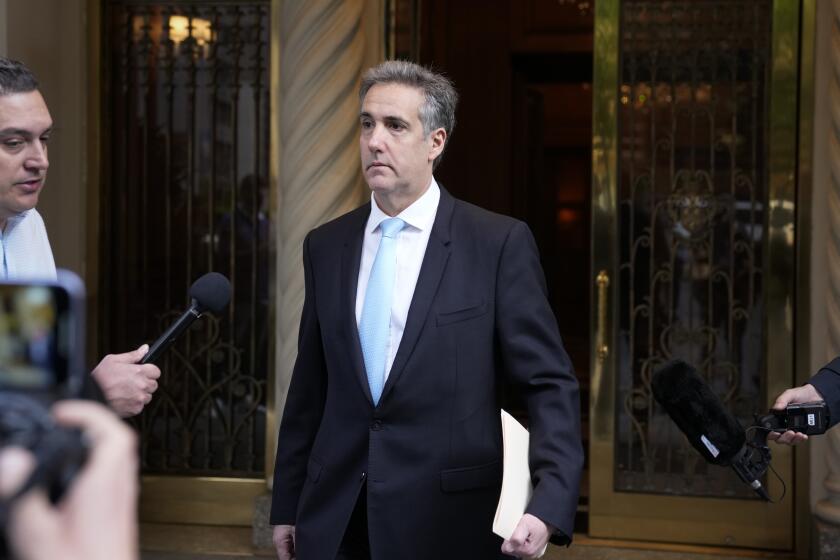Hurricane Katrina’s Price Tag Complicates the Budget Picture
The effort in Congress to offset some of the costs of Hurricane Katrina has split Republicans so sharply that Congress may not approve the spending cuts it had planned before Katrina.
In the House, the hurricane prompted the Republican leadership to back a package of offsetting cuts that were too little for some conservatives but too much for some moderates. As for the Senate, it is having a hard time agreeing on the shallower cuts it had planned to make pre-Katrina.
Even if both chambers can settle on their own totals, they may have difficulty compromising on a package that is neither too robust for the Senate nor too anemic for the House. Republicans know they cannot count on the Democrats to provide them a single vote.
“I’m somewhat pessimistic that they’ll reach an eventual agreement,” said Robert L. Bixby, executive director of the Concord Coalition, a lobby group for balanced budgets.
To the chagrin of conservatives, federal spending has grown far faster under President Bush than under his Democratic predecessor, President Clinton.
The war in Iraq and the establishment of the Homeland Security Department contributed mightily to the Bush increases, but so did boosts in domestic programs, particularly the creation of the Medicare prescription drug benefit, which takes effect Jan. 1.
“Democrats are talking like they are us, and we’re spending like them,” said Rep. Jeff Flake (R-Ariz.), a leading conservative.
Congress finds budget agreements elusive in the best of circumstances. And now, some of the forces that had kept the GOP majorities unified during past budget struggles are beginning to weaken.
Rep. Tom DeLay (R-Texas), known as “the Hammer” for his ability to pound reluctant colleagues into line, had to give up his post as House majority leader after his indictment for alleged campaign finance violations in Texas.
Also, Republicans who are possible candidates for the 2008 presidential nomination are starting to assert their independence. And the president’s sagging poll numbers aren’t helping matters.
Last spring, prodded by conservatives such as Flake, the Republican majorities in the House and Senate passed a congressional budget that called for cutting $35 billion from federal benefit programs such as Medicaid, food stamps and farm subsidies over five years.
But before legislation enacting those cuts could be passed, Hurricane Katrina swamped the Gulf Coast -- and threatened to swamp the budget cuts. Conservatives demanded more cuts to balance the spending on Katrina aid.
House Budget Committee Chairman Rep. Jim Nussle (R-Iowa) proposed reopening the budget to kick the $35 billion in cuts up to $50 billion.
Conservatives weren’t impressed. “Kids’ stuff,” Flake scoffed.
Republicans were also uncomfortable with another feature of Nussle’s plan -- a proposed 2% cut from annual appropriations bills, including noncombat accounts of the defense bill. Moderates had their own reservations about another feature of the proposal -- a requirement that taxes be cut by an additional $70 billion over five years.
“I’m more than happy to cut spending to reduce the deficit,” said Rep. Christopher Shays (R-Conn.). “I’m not inclined to cut spending so there can be more tax cuts, not with the war in Iraq, not with Katrina.”
Shays said that when House Republicans ran for reelection next year, voters would say: “Let me get this straight: The war is costing us over $200 billion. Katrina is going to cost us $100 billion plus. You want tax cuts? And you’re going to cut social programs after seeing the faces of New Orleans?”
So House Speaker J. Dennis Hastert (R-Ill.), who had informally scheduled a vote on the budget amendment for last Thursday, postponed it to sometime this week.
“The leadership is saying they will only go to the floor if they know they have the votes,” Flake said. “They don’t have the votes.”
Meanwhile, Senate committees are grudgingly approving their contributions to the proposed $35-billion spending cut bill.
The Senate Commerce, Science and Transportation Committee achieved most of its “savings” by a revenue-raising measure. It voted to establish April 7, 2009, as the deadline for television stations to broadcast a digital signal and to authorize an auction of the spectrum used for analog transmissions.
The Finance Committee, assigned the task of coming up with $10 billion worth of the cuts, has had the hardest time. Last week, its chairman, Sen. Charles E. Grassley (R-Iowa), unveiled a complicated package of spending cuts offset by some spending increases in Medicare (the health insurance program for the elderly) and Medicaid (the program for the poor).
Next year, the package would add $4.3 billion to federal spending, thanks largely to a $1.8-billion “down payment” in federal Medicaid payments to victims of Hurricane Katrina and replacement of the scheduled 4% decrease in doctors’ reimbursements for serving Medicare patients with a 1% increase.
Grassley said the cuts would be felt not by the programs’ beneficiaries but by hospitals, doctors, pharmacies and drug companies. The government would pay less for drugs for Medicaid patients, for example, and it would adopt a performance-based system of paying doctors and hospitals under Medicare.
Sens. Gordon H. Smith of Oregon and Olympia J. Snowe of Maine, the two committee Republicans in the vanguard of resistance to Medicaid cuts, signed off on Grassley’s package.
But Sen. Max Baucus of Montana, the committee’s top Democrat, said Grassley should not count on any Democrats to join him. Baucus particularly complained about the “stingy” Medicaid allowance for Katrina victims.
For their part, some conservative Republicans are reportedly upset that the Katrina aid is too generous. If the Democrats hold the line, Grassley cannot afford to lose a single Republican. The committee has scheduled a vote on the package Tuesday.
The vote could be crucial to this year’s effort to rein in federal spending.
Rep. Michael N. Castle, a moderate Republican from Delaware, said he and his fellow moderates did not want to be forced to go on record for a package of spending cuts if the measure was destined to die in the Senate.
Castle said he did not expect the Senate to approve even a $35-billion spending cut bill.
“Increasing the [spending cuts] from $35 billion to $50 billion seems to be an exercise in futility,” Castle said.
Not to House conservatives, it doesn’t.
Rep. Todd Tiahrt (R-Kan.) said Congress could easily reach $50 billion by making government more efficient.
“We ought to look at how we can streamline the system,” he said. “The Kansas Medical Society says the healthcare system spends 1.1 hours on paperwork for every hour on patient care.”
Rep. Patrick T. McHenry (R-N.C.) said he had never met a spending cut proposal that was too big. “The debate has shifted in Washington from how much are we going to spend to how much are we going to cut,” he said.
The challenge facing Congress, McHenry said, is “how to help our neighbors in the Gulf [Coast], while at the same time keeping our fiscal house in order. We have the leadership in the House that’s capable of rising to the challenge.”
More to Read
Get the L.A. Times Politics newsletter
Deeply reported insights into legislation, politics and policy from Sacramento, Washington and beyond. In your inbox three times per week.
You may occasionally receive promotional content from the Los Angeles Times.







